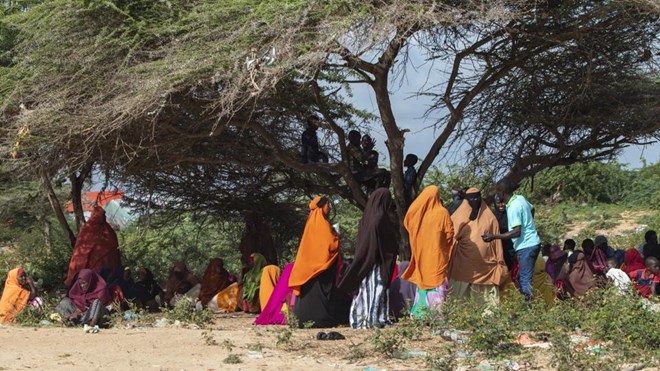
Friday December 2, 2022
A staggering 339 million people will need some form of emergency aid next year - 65 million more people than in 2021 - as more conflicts emerge, according to the United Nations.

The UN says that If all the people in need of aid were in one country, it would be the third-largest nation in the world, after China and India. (AA)
The United Nations (UN) has appealed for record funds for aid next year, as the Ukraine war and other conflicts in Africa, climate emergencies and the still-simmering pandemic push more people into crisis and some towards famine.
The United Nations' annual Global Humanitarian Overview released on Thursday estimated that 339 million people worldwide will need some form of emergency assistance next year - a staggering 65 million more people than the estimate a year ago.
"It's a phenomenal number and it's a depressing number," UN aid chief Martin Griffiths told reporters in Geneva, adding that it meant "next year is going to be the biggest humanitarian programme" the world has ever seen.
The annual appeal by UN agencies and other humanitarian organisations said that providing aid to the most vulnerable people across 68 countries would require a record $51.5 billion.
That was up from the $41 billion requested for 2022, although the sum has been revised up to around $50 billion during the year - with less than half of that sought-for amount funded.
If all the people in need of emergency assistance were in one country, it would be the third-largest nation in the world, after China and India, he said.'Shockingly high'
Among the specific types of aid listed are shelter, food, maternal health, child nutrition and protection, according to the UN website.
As the extreme events seen in 2022 spill into 2023, Griffiths described the humanitarian needs as "shockingly high".
"Lethal droughts and floods are wreaking havoc in communities from Pakistan to the Horn of Africa," he said, also pointing to the war in Ukraine, which "has turned a part of Europe into a battlefield."
The overlapping crises have already left the world dealing with the "largest global food crisis in modern history", the UN warned.
It pointed out that at least 222 million people across 53 countries were expected to face acute food insecurity by the end of this year, with 45 million of them facing the risk of starvation.
Five countries are already experiencing what the UN calls famine-like conditions, including Afghanistan, Ethiopia, Haiti, Somalia and South Sudan.
Conflicts have also taken a dire toll on a range of countries, not least on Ukraine, where Russia's full-scale offensive in February has left millions in dire need.